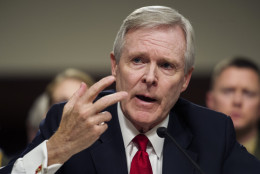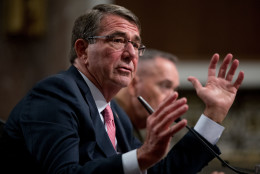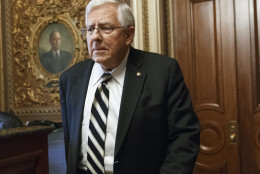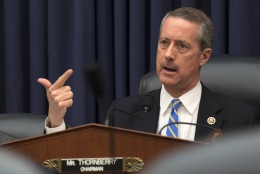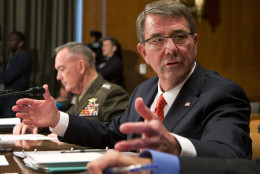sequestration
-
The 2016 update to the Navy Force Structure Assessment, sent to Congress last week, asserts the service needs a fleet of 355 ships in order to adequately perform its missions. That’s a big change from the 2014 plan of 308 ships the Navy has been building toward.
December 19, 2016 -
Defense-minded voters have been left with relatively little to go on as the nation nears the end of a presidential campaign that’s included only scant discussion of military issues.
October 31, 2016 -
A prominent Republican on the House Armed Services Committee is the newest lawmaker to ask the White House for a budget request to pay for additional troops in Afghanistan.
September 29, 2016 -
The Defense Department will ask Congress for another wartime find when lawmakers come back from their fall recess.
September 27, 2016 -
Larry Allen, president of Allen Federal Business Partners, joins host Mark Amtower to discuss transactional data reporting, GSA schedules, and current changes in the procurement arena. September 26, 2016
September 25, 2016 -
Sen. Mike Enzi is leading the charge for budget reform as Congress heads into the waning days of fiscal 2016 still looking for agreement on a spending bill.
September 19, 2016 -
As Labor Day approaches, children head back to school and Congress will return soon, too. Already, battles are shaping up over spending caps, sequestration and what to do now versus in a lame duck session. Roll Call Senior Editor David Hawkings joins Federal Drive with Tom Temin with a preview of a fall classic
August 30, 2016 -
To get ahead in Washington you have to speak at least two languages, your own and what Senior Correspondent Mike Causey calls GovTalk.
August 30, 2016 -
The White House’s biannual report to Congress says the House version of the 2017 spending bills would be $792 million above the limit for the defense and non-defense categories.
August 25, 2016 -
Familiar debates over the caps set in the Budget Control Act will crop again during the next administration, defense budget analyst Todd Harrison said at a press briefing marking the fifth anniversary of the 2011 law. The Defense Department has avoided many of the dire consequences it predicted would happen during 10 years of "devastating cuts." But it's used a series of workarounds to dodge many of the impacts.
August 02, 2016 -
The Defense Department is considering another emergency fund to pay for wartime expenses, leaving some to ask have supplemental funds gone too far?
July 11, 2016 -
A top Department of Homeland Security official thinks 2017 is the big year for cybersecurity investment.
May 24, 2016 -
Defense Secretary Ash Carter called the House proposal "deeply troubling," saying it would pay for additional troops and pay boosts at the expense of long-term military readiness and budget stability.
April 28, 2016 -
Sen. Barbara Mikulski (D-Md.) said she is spending at least part of her last year in Congress advocating for more money for science and medical research, and for an overall pay raise for federal employees.
April 11, 2016 -
Generals say current analyses show the U.S. will need more land forces for future conflicts, precisely at the time the Army is shrinking to its smallest size since before World War II.
April 07, 2016

